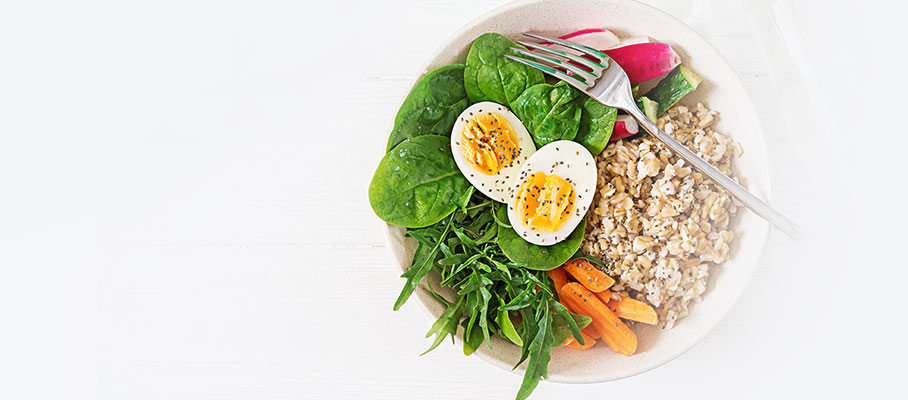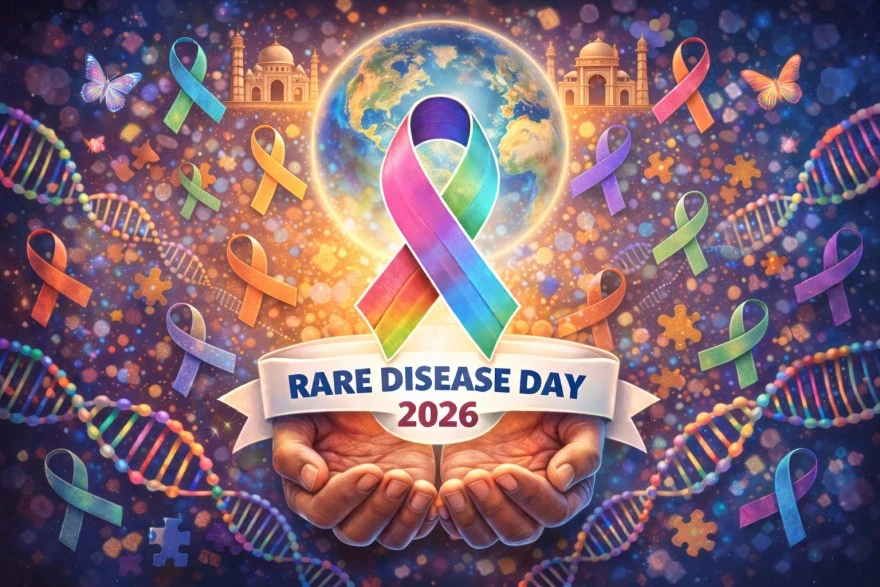Health Wellness
5 Vitamin D Foods: Sources & Benefits

Vitamin D, also known as the sunshine vitamin, is an essential nutrient required for maintaining health and wellness. It is both a nutrient you eat and a hormone your body produces when exposed to sunlight. This fat-soluble vitamin is notably responsible for calcium absorption in the body, thus improving bone mineral density. It also regulates cellular growth and supports the immune and neuromuscular functions in the body. Some studies suggest that vitamin D can help control infections and alleviate inflammation. In addition, there are claims that vitamin D can play a role in protecting you from diseases such as diabetes, heart disease, and even depression.
Are you sure you are getting enough vitamin D in your diet? Check your vitamin D levels with a simple blood test in the comfort of your home.
Since vitamin D is involved in so many bodily functions, you cannot take a deficiency of vitamin D lightly. Lack of vitamin D can cause a plethora of conditions such as rickets, osteoporosis, osteomalacia, brittle bones, a weakened immune system, inflammation, muscle fatigue, and weakness. A lack of vitamin D can even affect your nervous system.
The Recommended Dietary Allowance of vitamin D for all Indian population, in general, is 400 IU (10 mcg) daily.* Some sources mention that for adults over 70, it should be 800 IU (25 mcg). Consult a doctor to help you understand how much vitamin D you need as per your sun exposure. For people who don’t or cannot spend a lot of time outdoors, it can be difficult to get enough vitamin D and doses might be higher. If you have concerns that you are not getting enough vitamin D from direct sunlight, consuming the following vitamin D-rich foods will help increase the overall amount of vitamin D in your body.
Here are 5 food groups that are rich in vitamin D:
1. Egg Yolks
Whole eggs are the healthy and wonderfully nutritious food, which you will ever find! Although most of us avoid eating egg yolks as they have historically gotten a bad rap for raising levels of bad cholesterol in the body. Skipping egg yolks in favor of egg whites will decrease your calorie and fat intake but you will be missing out on some of the protein, key nutrients such as choline, essential for brain development, and several of the minerals in yolks, such as selenium and zinc, which play a role in boosting your immune system. And you will be missing out on vitamin D, too. One large egg has 44 IU which is 6 % of your daily value. Eating up to 3 whole eggs is considered safe for a healthy adult. So, enjoy them in moderation.
2. Fatty Fish
Not only is fish a great option for protein but it is also rich in vitamin D. If you have vitamin D deficiency, it is mostly advised to eat fish on a daily basis. Fishes such as salmon, tuna, sardines, trout, hilsa, swordfish fish, and mackerel being good sources of healthy protein and omega-3 fatty acids, will be a great addition to anyone’s diet looking to get more vitamin D. Include fish in your dinner plate three times per week.
On average, 100 grams serving of salmon provides 988 IU of vitamin D, i.e., 124% of the daily value.
3. Milk and Milk Products
Vegetarians need not worry! Being an excellent source of calcium, milk is also rich in vitamin D. Hence, including a glass of cow milk in your breakfast meal can improve the vitamin D level in your body. It will not only boost your metabolism but also will ensure that you don’t feel worn out throughout the day. Full-fat milk has the maximum vitamin D content in it. Fat-soluble vitamins are lost when the fat is removed from the full-fat milk.
One cup of milk provides about 115–130 IU of vitamin D which is 15–22% a person’s daily requirement. Health experts and nutritionists also suggest that adding milk and milk products like yogurt, cheese, buttermilk, and butter to your daily diet may prevent you from many bone diseases.
4. Mushrooms
Mushrooms, a kind of superfood that packs vitamin punch, are the only good plant source of vitamin D. They are extremely nutritional, contain an array of vitamins and minerals. But not all mushrooms have the same amount of vitamin D, it varies depending on the type and variety of the mushroom. While commercially grown mushrooms are often grown in the dark, they don't naturally offer a high amount of vitamin D, some are exposed to UV light, providing a larger dose of the vitamin as a result. A serving has 124-1,022 IU of vitamin D per 100 grams, depending on the amount of UV light the mushrooms are exposed to. So, it is always better to pick sundried mushrooms as they have higher vitamin D content.
If you are vegetarian or vegan, specific mushrooms may be an option. These vitamin-loaded mushrooms are really tasty and can be easily incorporated into your diet.
5. Fortified Foods
Natural sources of vitamin D are limited, especially if you are vegan or don’t like fish.
Fortunately, some food products are designed to add nutrients that don’t naturally occur in the product. Manufacturers add vitamin D to many commercially available food products. These foods are then described as being fortified with vitamin D, or other nutrients. Common fortified foods with extra vitamin D and other nutrients include:
- cow’s milk
- soy milk
- almond milk
- orange juice
- yogurt
- various breakfast cereals.
These foods might contain 54-136 IU per serving. But fortified foods can contain added ingredients, like sugar or saturated fats that make the product less healthy. So, it is important to look for products with no added sugar.
Eating plenty of these listed vitamin D-rich foods is a great way to get enough vitamin D. However, depending on a person’s dietary preferences, consuming enough vitamin D may be difficult. Remember to not overconsume as excess vitamin D can cause the body to absorb too much calcium, leading to an increased risk of kidney stones and heart disease.
We still suggest that the easiest way of getting your daily dose of vitamin D is spending time in the sun. Aim for 15-20 minutes of mid-day sun exposure at least twice per week. However, if this is not possible, vitamin D supplements like cod liver oil, maybe a beneficial choice.





























Pradeep Kumar Singh
04 May 21 04:48 pmNice information